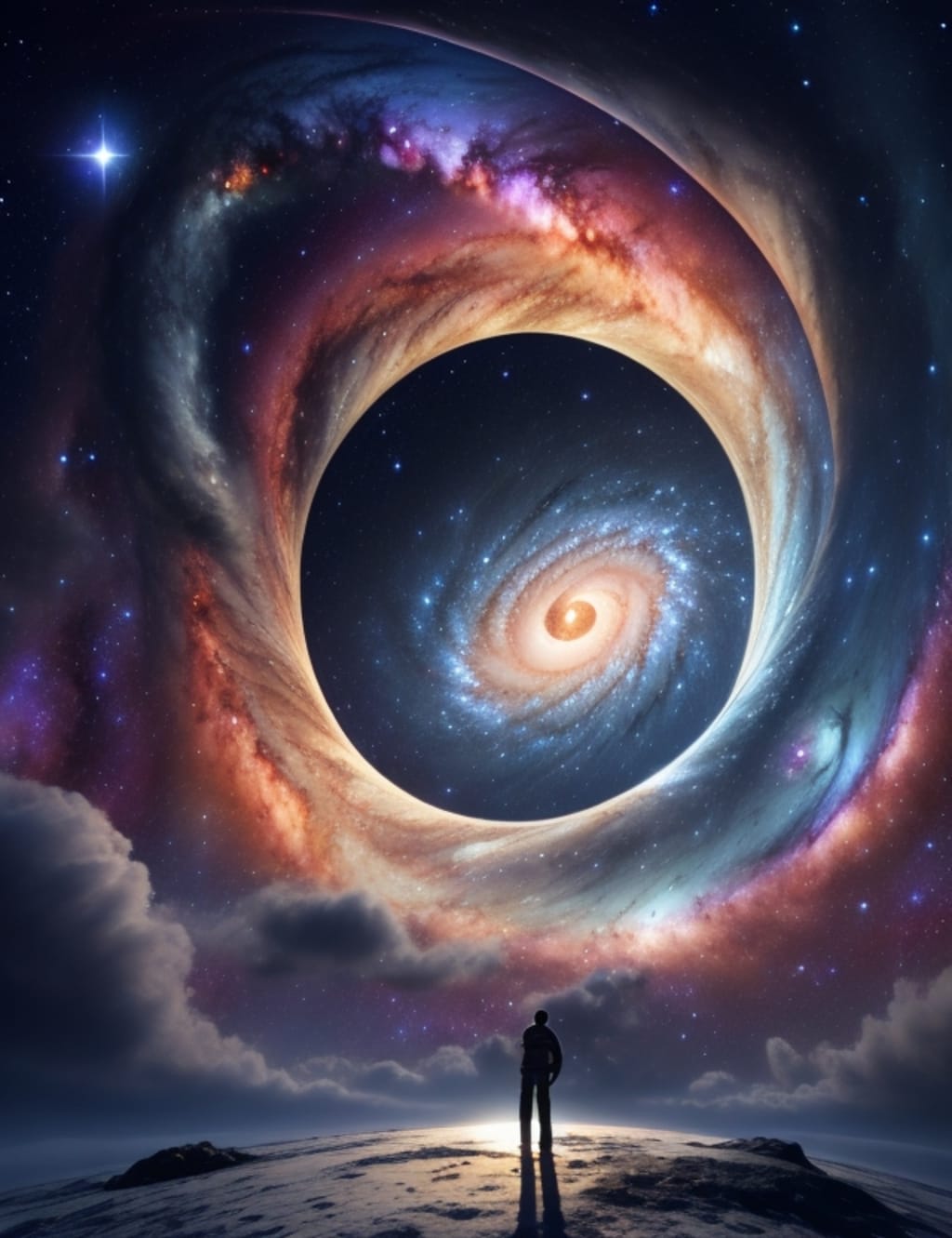The Age of the Universe: Exploring New Cosmological Models
Discover the mysteries of the universe's age, delve into the depths of cosmic time, and explore the exciting realm of new cosmological models in this detailed blog post. Uncover the universe's chronology, understand the significance of the Big Bang theory, learn about the expanding universe via Hubble's law, and delve into modern cosmological concepts like dark matter and dark energy. Join us on this cosmic journey.

"From time immemorial, humans have looked up at the night sky and wondered - How old is the universe? Is there a limit to its size? Are we alone? These are fundamental questions that guide our quest for understanding our place in the grand cosmic scheme of things. Our collective journey towards the truth has led us through various twists and turns, and today, we stand on the precipice of new understanding with contemporary cosmological models.
Delving into the Depths of Cosmic Time
According to the Big Bang theory, our universe was born from a cataclysmic event that occurred around 13.8 billion years ago, give or take 21 million years. Yet, the curiosity of mankind has never been satisfied with absolute figures. We yearn to delve deeper into the mystery and seek out novel models to better comprehend the chronology of the universe.
The Early Universe: Unfolding the Origin Story
Imagine the first picosecond (10^-12) of cosmic time. Picture the birth of the four fundamental forces - gravitation, electromagnetic, weak, and strong interactions. This was a time when the laws of physics as we know them might not have even applied! A cosmic wild west of sorts. The smallest ripples in the universe during this period are believed to have sown the seeds for large-scale structures that formed much later.
Now, let's fast forward a few billion years. The universe has cooled down, and it's time for the formation of the first stars and galaxies. From this point forward, the universe, as we know it, began to take shape.
The Expansion of the Universe: Hubble's Groundbreaking Discovery
It was the American astronomer Edwin Hubble who first observed that galaxies were moving away from us at speeds proportional to their distance. This groundbreaking discovery provided the first observational basis for the concept of an expanding universe. Put simply, the farther the galaxies, the faster they're zooming away. Think of it like raisins in a rising loaf of bread.
New Horizons: Modern Cosmological Models
The Cosmic Microwave Background: Echoes of the Big Bang
One of the most robust pieces of evidence supporting the Big Bang theory is the Cosmic Microwave Background (CMB). It's the afterglow of the primordial universe, a cosmic wallpaper visible to us in every direction. The CMB serves as a cosmic baby photo, offering a snapshot of the universe when it was just 380,000 years old.
The Role of General Relativity
Albert Einstein's general theory of relativity revolutionized our understanding of the universe. It describes gravity as a geometric property of space and time. Although originally proposed in 1915, the equations of general relativity continue to frame our current understanding of the universe's expansion.
Enigma of Dark Matter and Dark Energy
We now know that our universe's composition is much stranger than we ever imagined. The matter that we see, including stars, planets, galaxies, and everything on Earth, makes up only about 4.9% of the universe. The rest? It's filled with dark matter and dark energy, at 26.8% and 68.3%, respectively. These enigmatic components remain the greatest mysteries of modern cosmology.
The Universe: An Ever-Expanding Cosmic Ballet
To capture the essence of the age of the universe, we must embrace a paradigm shift. We must recognize the universe not just as a static background but as an evolving entity, an ever-expanding cosmic ballet. With new cosmological models and advancements in technology, we might one day be able to answer the age-old questions that have baffled humanity for centuries.
FAQs
Q: How old is the universe?
A: The universe is approximately 13.8 billion years old.
Q: What was the universe like in its earliest stages?
A: The universe was extremely hot and dense, filled with a plasma of sub-atomic particles.
Q: What is Hubble's Law?
A: Hubble's Law states that galaxies are moving away from us at speeds proportional to their distance.
Q: What is the Cosmic Microwave Background?
A: The Cosmic Microwave Background (CMB) is a remnant radiation from the Big Bang, filling all space in the observable universe.
Q: What is the role of general relativity in understanding the universe?
A: General relativity describes gravity as a geometric property of space and time, and provides a framework to understand the universe's expansion4.
Q: What are dark matter and dark energy?
A: Dark matter and dark energy are components of the universe that we cannot directly observe. Dark matter interacts through gravity, while dark energy accelerates the expansion of the universe.
In the grandeur of the cosmos, our understanding of the universe's age represents our quest for knowledge, our thirst for understanding, and our need to find our place in the cosmic story.





Comments
There are no comments for this story
Be the first to respond and start the conversation.